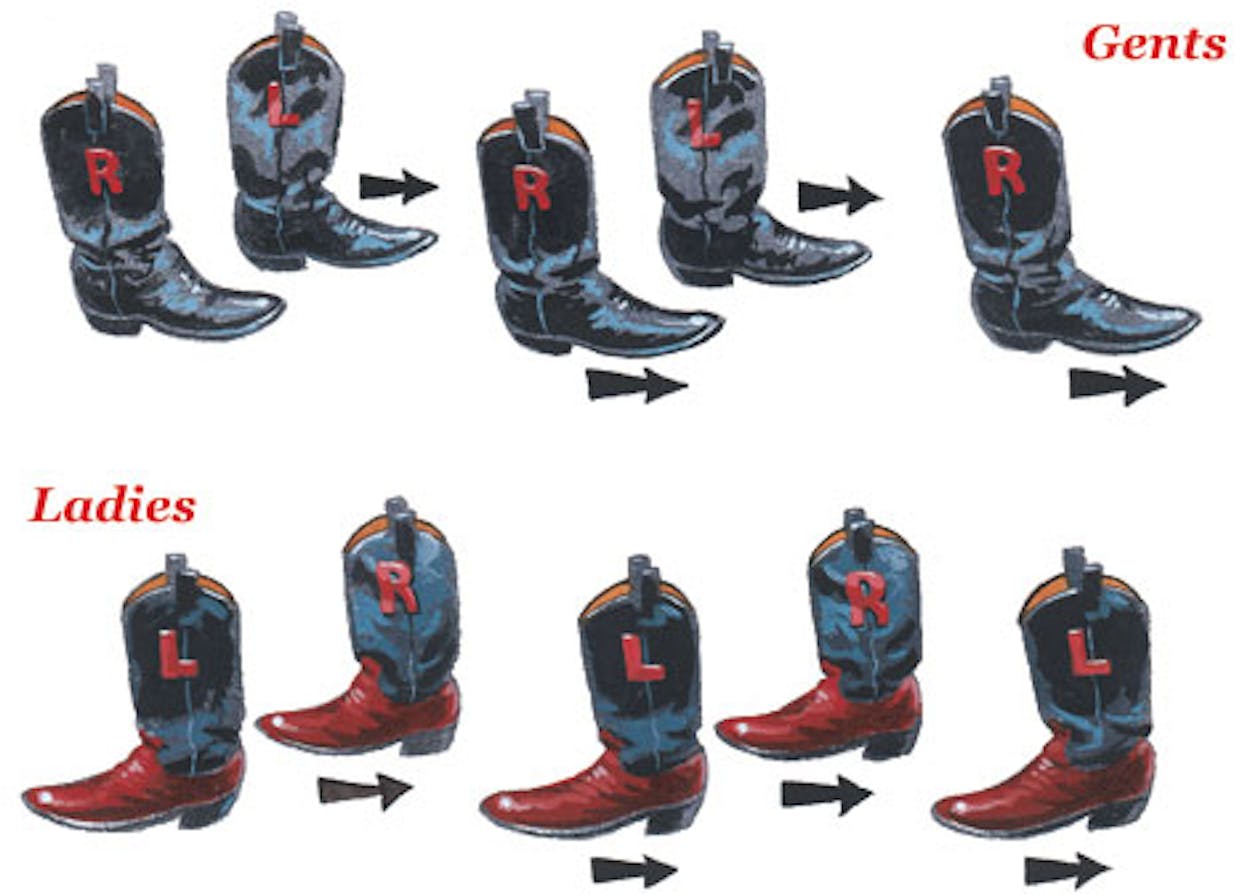Watching couples coast around at the honky-tonk may intimidate the double-left-footed, but heck, if a cowboy can dance, how tough is it, really? “Two-stepping is just walking to a beat,” says Austin-based Rowdy DuFrene, a two-time United Country Western Dance Council World Champion. “While many variations exist, the true version follows a quick-quick-slow-slow pattern danced over six beats to music with four-four time.” To start, get into the traditional closed position. Gents, place your right hand on her left shoulder blade and hold your left arm out to the side, slightly bent. Ladies, lay your left arm on top of his right, gripping his bicep, and slip your right hand into his left. Crank up your favorite country crooner and get goin’.
1. QUICK
On the first beat, gents, step forward with your left foot as your partner steps back with her right. Don’t look down; lead with confidence to avoid bruising her toes.
2. QUICK
On the second beat, step forward with your right foot as she steps back with her left. Glide each foot past the other; never stop to close them together. Your mantra: “This is just like walking.”
3. SLOW
On the third beat, step forward with your left foot (sound familiar?) as your partner steps back with her right. Hold the fourth beat, with no movement; your partner mirrors you.
4. SLOW
Complete the pattern by stepping forward on the fifth beat with your right foot as she moves back on her left. Hold the sixth beat, then give the lady a twirl. You just completed a true two-step!
Making Your Moves: A few dance tips
• Do mind your posture. A strong frame improves the quality of your dance (though a lady can keep it informal by hooking a thumb through her man’s back belt loop).
• Don’t be a kangaroo. Two-stepping is all about looking smooth, so avoid bouncing as you move.
• Do know your role. Leads set the pace and followers are along for the ride. To best read each other’s body language, stand close.
• Don’t dominate floor space. The line of dance moves counterclockwise; beginners should stick to the inner circle so that experts can skate by any stuttering steppers.
- More About:
- Music








